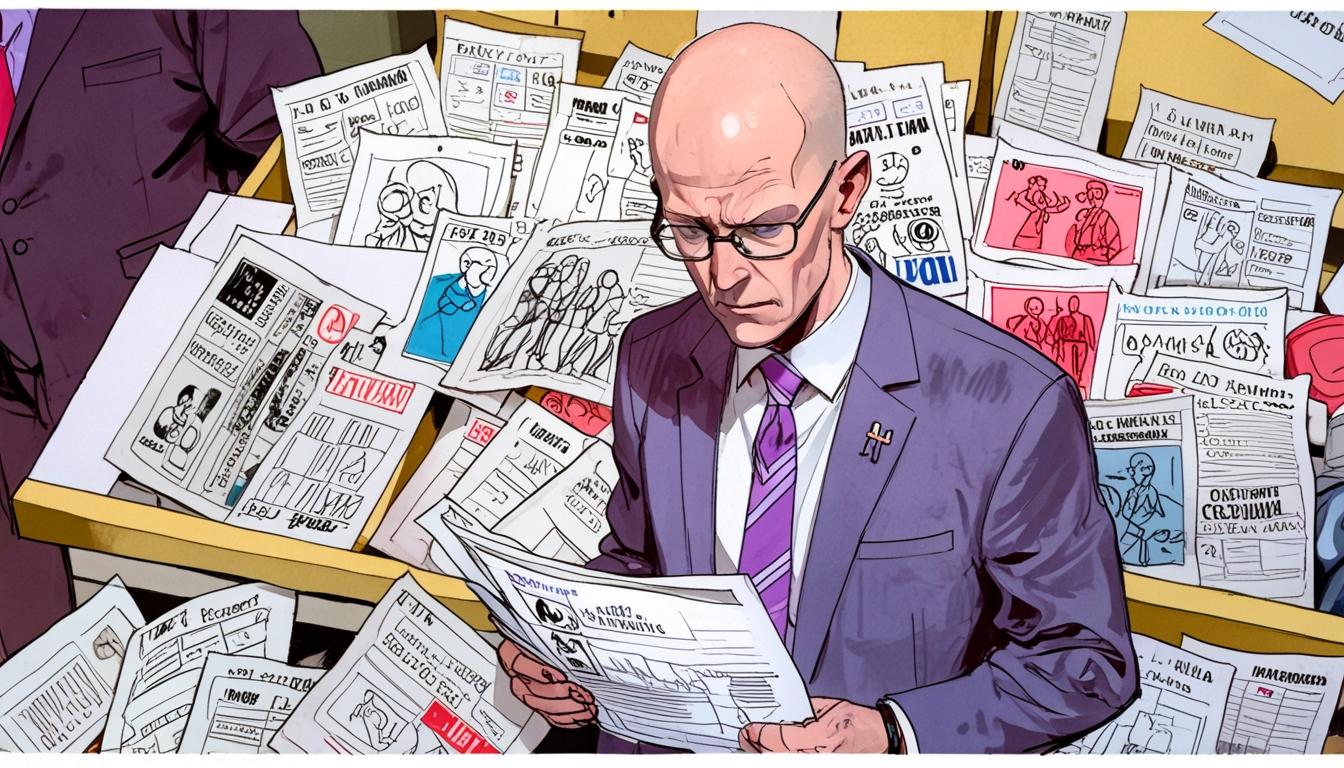First Minister John Swinney has come under significant scrutiny following the unveiling of a legislative programme for the year leading up to the Holyrood elections, which features only six new bills, including the mandatory Budget Bill. This has raised concerns among opponents regarding the efficacy and ambition of his proposals, with critics labelling his announcements as insufficient.
Swinney's approach to health policy has particularly drawn attention after a key NHS initiative to create 100,000 additional GP appointments was announced as a strategy to address what is commonly referred to as the ‘8am lottery’ for appointment bookings. However, medical professionals have already expressed scepticism about the feasibility of achieving this target. Dr Iain Morrison, the chairman of the Scottish general practice committee at the British Medical Association, commented to the BBC that while the investment is welcome, it represents less than a full working day of appointments in the broader context of general practice, which typically offers 650,000 appointments weekly. He suggested that it would not resolve existing access issues.
Additionally, Swinney experienced a notable shift in policy regarding ScotRail’s peak fares, announcing their removal beginning September, despite previous assurances that this decision would not represent good value for money. The First Minister framed this reversal as part of a “cost of living guarantee,” while simultaneously reaffirming the SNP’s stance as the highest taxed region in the UK, with no immediate plans to amend this.
The programme also includes plans to further invest public funds in initiatives related to Scottish independence, with civil service resources allocated to develop a new economic proposal. This has been a contentious area of discussion, with various factions within the Scottish Parliament criticising the perceived prioritisation of independence over pressing issues facing the populace, such as healthcare and educational disparities.
Scottish Conservative leader Russell Findlay was vocal about what he described as a “flimsy programme” that lacks substance and fails to renew public trust in the SNP, noting that around one-third of SNP members of the Scottish Parliament (MSPs) were absent during Swinney’s address. Findlay asserted, “John Swinney is the politician who has failed to deliver for the past 18 years,” insinuating that his efforts to rectify past mistakes are inadequate.
Furthermore, Scottish Labour leader Anas Sarwar echoed concerns regarding the absence of a decisive strategy to address Scotland’s NHS crisis, highlighting that one in six Scots are currently on a waiting list. Sarwar admonished the lack of a comprehensive plan for other critical issues, including education and homelessness, stating, “if the SNP had a good idea, they would have delivered it by now.”
In response to these challenges, Mr Swinney assured members of the Scottish Parliament that enhancing the NHS remains a priority, asserting his commitment to reducing appointment pressures and increasing overall healthcare capacity. He highlighted initiatives to direct more patients to pharmacies for non-critical health issues and to focus extra GP appointments on monitoring critical health risk factors.
The legislative programme also included a commitment to additional funding for carbon capture initiatives, contingent upon approvals from the UK Government for the Acorn project. However, environmental organisations have voiced disappointment, alleging that the government's measures do not demonstrate the robust environmental commitment required to tackle climate change effectively.
While Swinney seeks to position his legislative agenda as a “programme for a better Scotland” in the run-up to elections, the effectiveness of these proposals remains under scrutiny from both opposition parties and healthcare professionals.
Source: Noah Wire Services
